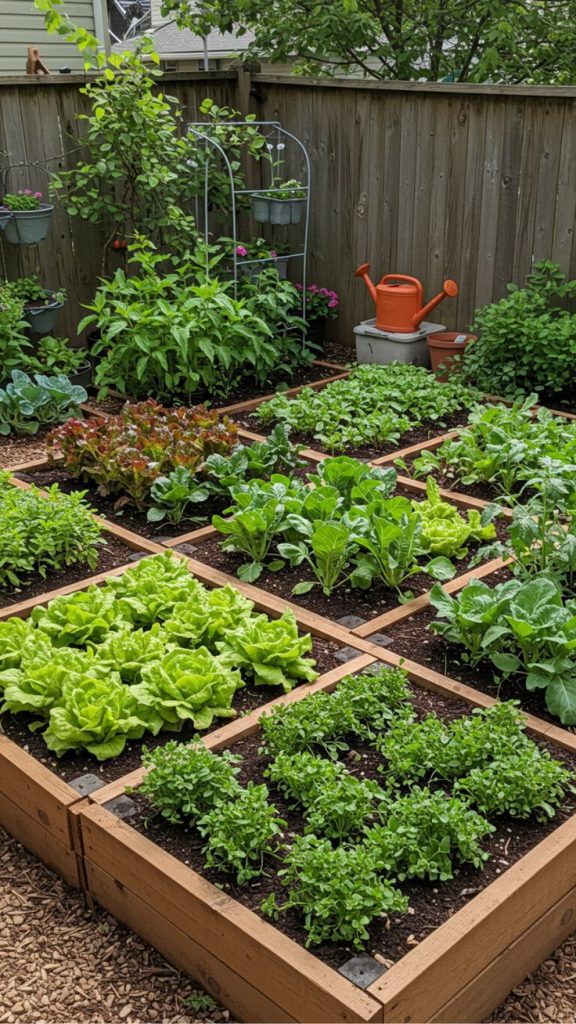For a new gardener, discovering your first pest infestation can be a moment of panic. While it might be tempting to reach for a chemical spray, the best approach for a healthy and sustainable backyard garden is to use preventative and organic methods. Pests are a natural part of the garden ecosystem, and the goal is not to eliminate them entirely, but to keep them in check so your plants can thrive. As we are in late summer, a season when pests are particularly active, these tips are especially timely.
Here’s how to keep your a beginner’s guide to backyard gardening using safe and natural methods.
1. Prevention is Key: Build a Resilient Garden
The first line of defense against pests is a healthy, strong garden.
- Start with Healthy Soil: Plants grown in rich, well-nourished soil are more resilient to pests and diseases. Focus on building your soil with plenty of organic matter like compost.1
- Choose the Right Plants: Select plant varieties that are known to be naturally pest-resistant. Read seed packets and plant tags for information on disease and pest resistance.
- Give Plants Room to Breathe: Overcrowded plants are a breeding ground for pests and diseases. Ensure your plants have proper spacing to allow for good air circulation, which keeps the foliage dry and healthy.
2. Natural Pest Control Methods
Instead of reaching for chemicals, use these organic methods to manage pests.
- Hand-Picking: This is a simple and effective method for larger pests like slugs, snails, and tomato hornworms. Check your plants daily, especially on the undersides of leaves, and simply remove the pests by hand.
- Companion Planting: This is an ancient technique where you strategically plant certain varieties together to help each other.
- Basil planted with tomatoes can help deter tomato hornworms.
- Marigolds can repel a wide variety of pests, including aphids and nematodes.
- Rosemary and Sage can protect brassicas (like cabbage and broccoli) from moths and other flying insect
- Encourage Beneficial Insects: Not all bugs are bad! Many insects, like ladybugs, lacewings, and parasitic wasps, are natural predators of common garden pests.6 You can attract these “good bugs” by planting flowers that they love.7
- Plants that attract beneficial insects: Dill, fennel, yarrow, and sweet alyssm.
3. Simple Homemade Solutions
For more targeted control, you can create effective, natural sprays using common household ingredients.
- Soap Spray: This is highly effective against soft-bodied insects like aphids, mites, and whiteflies.9
- Recipe: Mix 1 tablespoon of mild liquid dish soap (make sure it doesn’t contain bleach) with 1 liter of water. Spray directly on the pests, making sure to hit the undersides of leaves where they often hide. The soap dissolves their protective outer coating, dehydrating them
- Neem Oil: A naturally derived oil from the neem tree, this is a popular organic choice.11 It works as a repellent and disrupts the life cycle of many insects.
- How to Use: Follow the instructions on the bottle, which usually involves mixing it with water and a bit of soap.12 It’s best to apply neem oil in the evening to avoid burning the leaves and to ensure it doesn’t harm beneficial insects that are active during the day
4. Garden Maintenance and Sanitation
A clean garden is a pest-free garden.
- Monitor Regularly: Spend a few minutes each day inspecting your plants. Catching a pest problem early on is the best way to prevent a full-blown infestation.
- Clean Up Debris: Remove any fallen leaves, dead plant material, or weeds from your garden beds. This eliminates hiding places for pests and helps prevent the spread of diseases.
- Use Water Wisely: Water plants at the soil level in the morning to keep foliage dry. Wet leaves can be a breeding ground for fungal diseases that weaken plants and make them more susceptible to pests.
By adopting these simple, organic strategies, you can maintain a beautiful and productive backyard garden without resorting to harsh chemicals. Gardening is about creating a balanced ecosystem, and by working with nature, you can keep your plants healthy and your harvest safe to eat.


